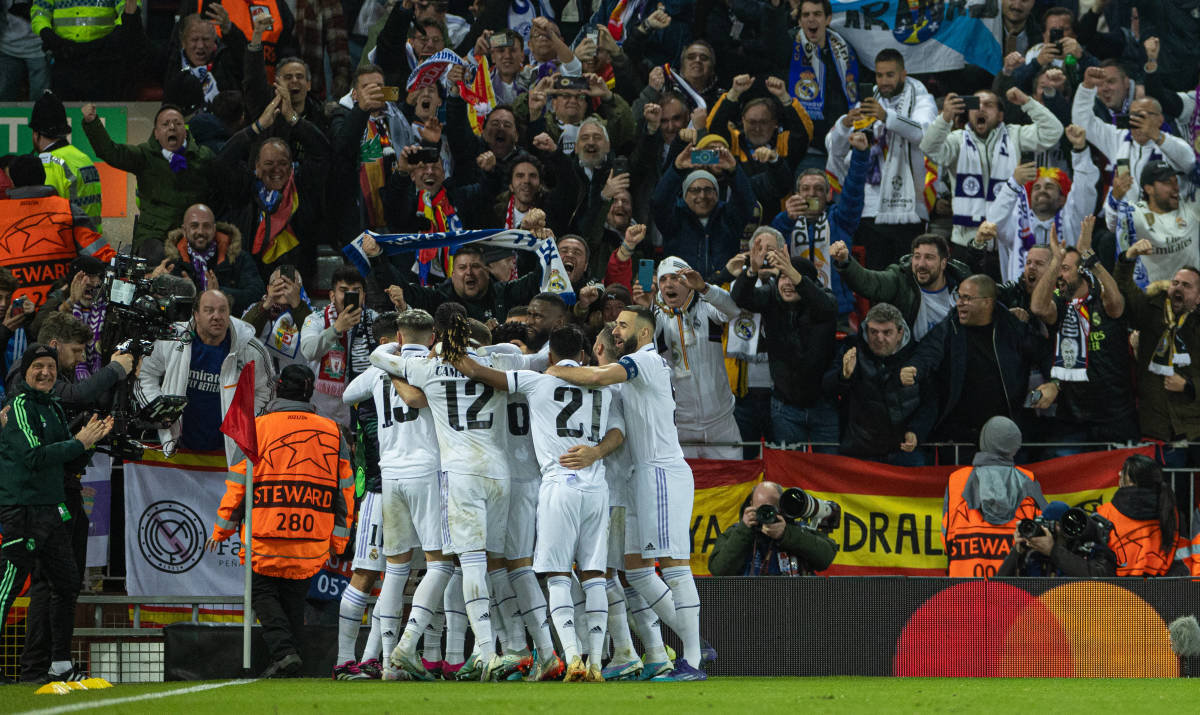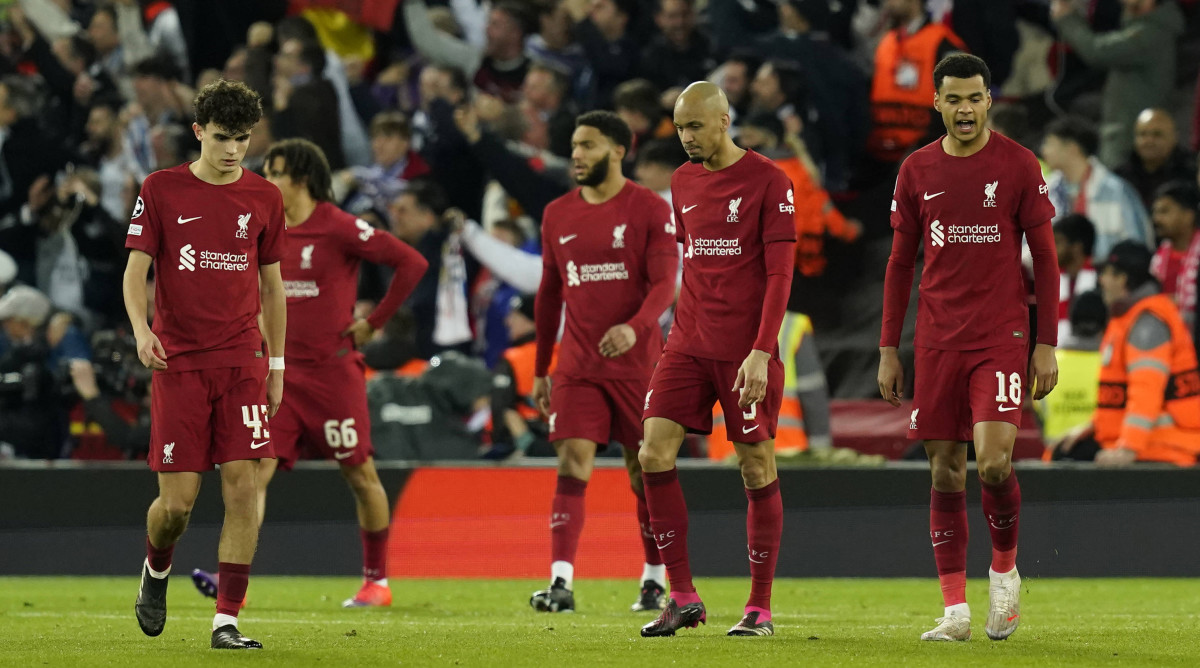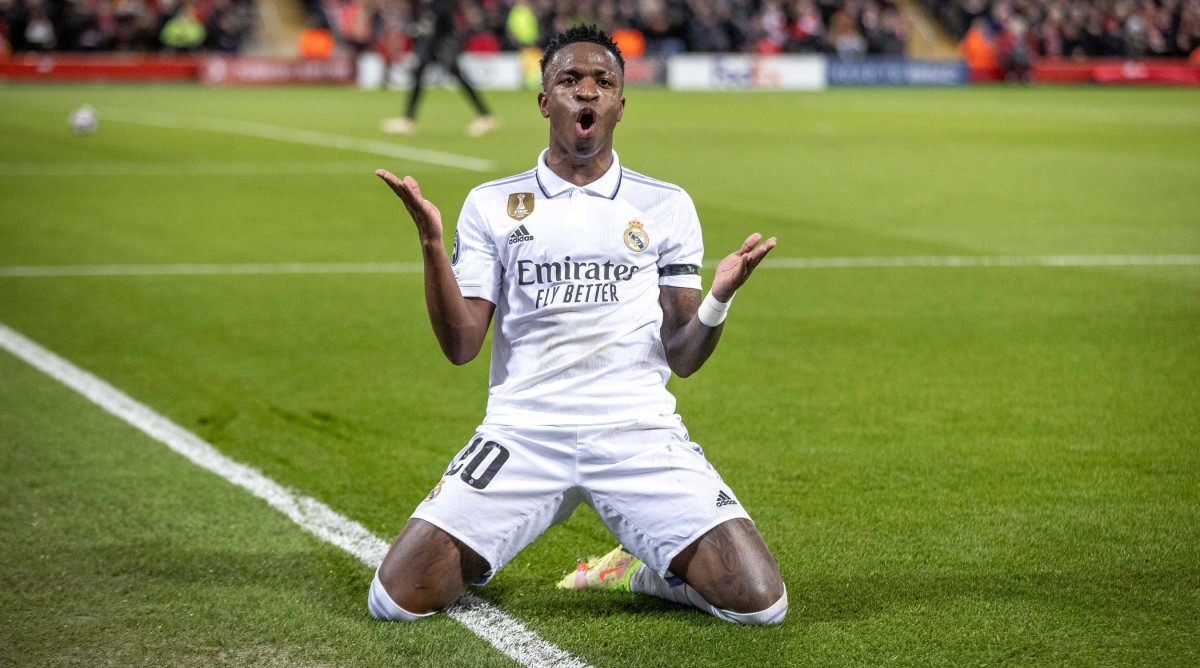Real Madrid’s Resilience Overwhelms Liverpool in Champions League Rout
“People think Madrid are dead, but Madrid are never, never dead,” Eduardo Camavinga had said before the game. After the way Real Madrid won the Champions League last season, a triumph of resistance, resilience and brilliant cameos, it perhaps didn’t need reiterating. But in beating Liverpool 5–2 on Tuesday, Madrid did it again.
At times early on, Real Madrid was outplayed, yet it somehow had the inner belief, allied to the individual brilliance, to come back. The capacity to ride out storms is built-in. The main difference this week was that it was the new generation who dragged Madrid back into the game. Where last season, Madrid relied on Karim Benzema, Luka Modrić and Thibaut Courtois, this time it was Vinícius Júnior and Fede Valverde who excelled—although Modrić and Benzema played key parts as well.
But it took time before they imposed themselves. For 20 minutes the sense was that Madrid could not handle Liverpool’s pace and aggression. This is the first time since the tournament adopted this format in 2003-04 that there had been only one Spanish side in the last 16, and in those opening minutes the temptation was to see Madrid as representative of a La Liga in decline. Even in victory, there must be a thought that better teams than this season’s Liverpool will exploit Madrid’s defensive weaknesses. But then, people said that last season as well.

Liverpool’s press had already caused a couple of problems when it took the lead after four minutes. Stefan Bajčetić has been one of the few positives so far this season for Liverpool. On the night, he became Liverpool’s youngest ever starter in a Champions League knockout game at just 18 years and 122 days, and he played a critical role in the opening goal, taking down a dropping ball on his chest and then, under pressure, shaping the ball wide to Jordan Henderson with the outside of his right foot. Henderson played it to Mohamed Salah and Darwin Núñez converted the Egyptian’s cross with a deft flick with the inside of his heel.
Henderson, Salah and Trent Alexander-Arnold linked up repeatedly in the first half, before Carlo Ancelotti switched Modrić and Valverde to clog up that side, the old triangle in the right-hand side suddenly back in harness and firing. Salah looked sharper than he has since probably since returning from the Africa Cup of Nations a year ago. But his goal after 14 minutes, Liverpool’s second, had very little to do with anything Liverpool did. Salah took the chance well, but it was made by an extraordinary mishap from Courtois.

At that stage, the feeling was that Liverpool could embarrass Madrid. It seemed quicker, sharper, more imaginative. But then Vinícius turned sharply in the box and whipped a finish just inside the far post and, in an instant, the game had changed. The strike was excellent, and in that sense it was reminiscent of how Madrid won the tournament last season, producing great moments just when they were needed. But it was also a reminder of how poor Liverpool has been defensively this season, Joe Gomez allowing the Brazilian to turn far too easily. It wouldn’t be the only help Liverpool gave Madrid.
The equalizer stemmed from another goalkeeping error. Bajčetić, who was gradually outshone by Modrić, had been dispossessed by Valverde but the bulk of the blame lay with Alisson who, after Gomez had intercepted, smacked his clearance into Vinícius, from where it rebounded into the net. The goal that gave Madrid the lead soon after halftime, meanwhile, was largely the fault of Gomez who, having given away a needless free kick, then failed to pick up Éder Militão as he made a near-post run to head in Modrić’s free-kick.

Gomez’s miserable night continued as, having played Rodrygo onside in the buildup, he then deflected Benzema’s shot past Allison after 56 minutes. Modrić and Vinícius then combined to tee Benzema up for a fifth.
Madrid’s comeback will be celebrated and understandably so, but it would be wrong to say this was an entirely convincing performance. As last season showed, that may not matter too much, at least as far as its chances of winning the Champions League are concerned. Rather, the result, eye-catching as it is, seemed to say more about Liverpool and its fluctuating form—capable of the old aggression but without yet the old organization—than it did about Madrid. Other than, perhaps, to reiterate that faltering league form should never be used to write off the most successful team in European history.
